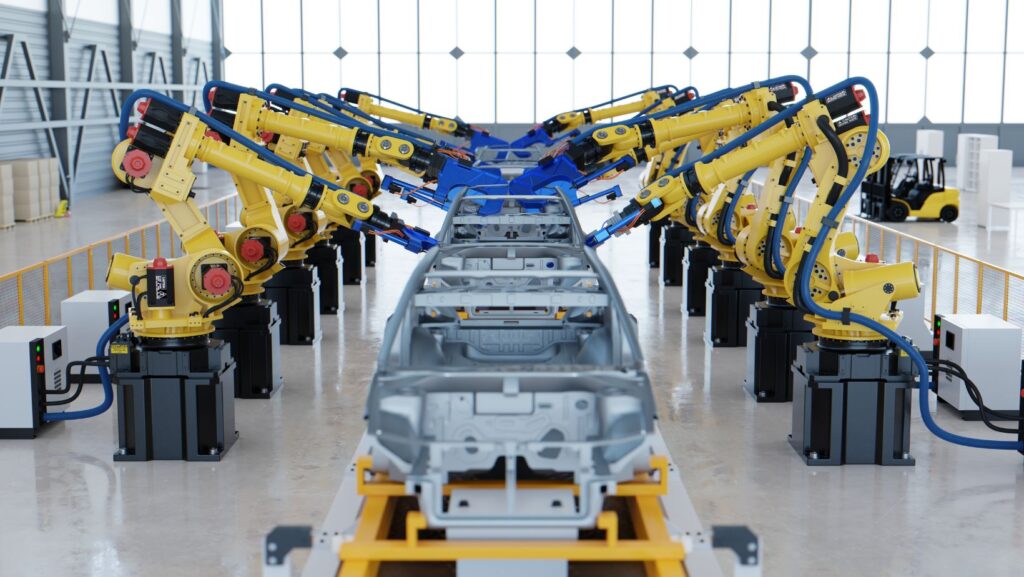Stepping into the realm of automotive technology is like embarking on a journey through the cutting-edge innovations that shape the way we drive, commute, and interact with vehicles. From autonomous driving systems to electric powertrains, the landscape of the automotive industry is constantly evolving, pushing boundaries and redefining the driving experience. As I delve into the intricate world of automotive technology, I uncover how advancements in connectivity, safety features, and sustainability are revolutionizing the way we perceive and engage with automobiles. Join me as I explore the dynamic intersection of technology and transportation, where every innovation propels us towards a future where cars are not just modes of transport but intelligent companions on the road.

Automotive Technology
Delving into the evolution of automotive technology, I witness a fascinating journey marked by relentless innovation and transformation. From the rudimentary beginnings of motorized vehicles to the cutting-edge advancements of today, the automotive industry has undergone a remarkable evolution.
- Inception of Automobiles:
As I traverse through the annals of automotive history, I uncover the humble origins of automobiles in the late 19th century. With the creation of the Benz Patent-Motorwagen in 1886 by Karl Benz, the foundation for modern automobiles was laid. This revolutionary invention set the stage for the seismic shifts that would follow in the realm of transportation. - Internal Combustion Engine Revolution:
The development of the internal combustion engine by Nikolaus Otto and Gottlieb Daimler in the late 19th century propelled the automotive industry into a new era. This innovation enabled the mass production of vehicles, making them more accessible to the general public and revolutionizing the way people traveled. - Technological Advancements in the 20th Century:
The 20th century witnessed an unprecedented wave of technological advancements in the automotive sector. Innovations like electric starters, automatic transmissions, power steering, and safety features such as seat belts and airbags reshaped the driving experience, making it safer, more convenient, and comfortable for motorists. - Digital Revolution and Connectivity:
With the advent of the digital age, automotive technology underwent a paradigm shift. The integration of computers into vehicles led to the development of sophisticated infotainment systems, GPS navigation, and driver-assist technologies. This digital revolution not only enhanced the driving experience but also laid the groundwork for future innovations such as autonomous driving systems. - The Rise of Electric Vehicles and Sustainability:
In recent years, the automotive industry has witnessed a significant focus on sustainability and environmental conservation. The rise of electric vehicles (EVs) powered by batteries has emerged as a promising solution to reduce carbon emissions and combat climate change. This shift towards electrification reflects a growing commitment towards building a more sustainable future for transportation.
Navigating through the dynamic landscape of automotive technology, I am captivated by the continuous drive for innovation and progress that defines the evolution of vehicles and shapes the future of mobility.
Impact of Automotive Technology on the Environment
Exploring the impact of automotive technology on the environment is crucial in understanding the broader implications of technological advancements in the automotive industry. As we delve into this topic, it becomes evident that the evolution of automotive technology has brought both benefits and challenges in terms of environmental sustainability.
One of the key aspects of the impact of automotive technology on the environment is the shift towards electric vehicles (EVs). The growing adoption of EVs is seen as a significant step towards reducing carbon emissions and mitigating the environmental impact of traditional internal combustion engine vehicles. By transitioning to EVs, the automotive industry aims to decrease its carbon footprint and contribute to a greener and cleaner environment.
Apart from electrification, automotive technology has also focused on developing more fuel-efficient vehicles. Advanced technologies such as hybrid powertrains, lightweight materials, and aerodynamic designs have made modern vehicles more fuel-efficient, thereby reducing their impact on the environment by lowering greenhouse gas emissions and fuel consumption.

